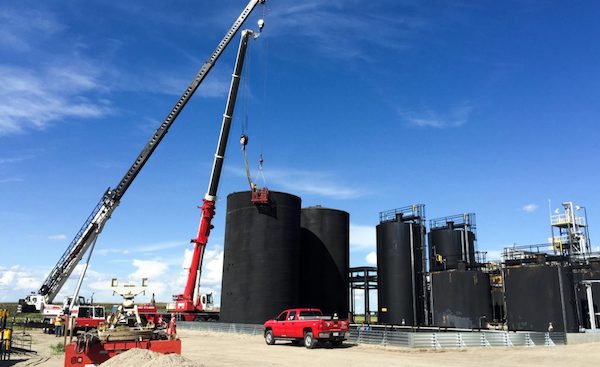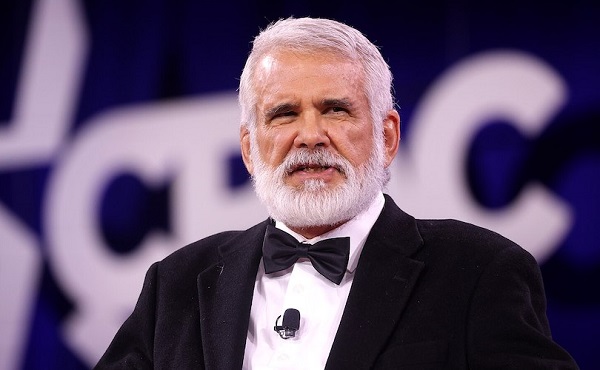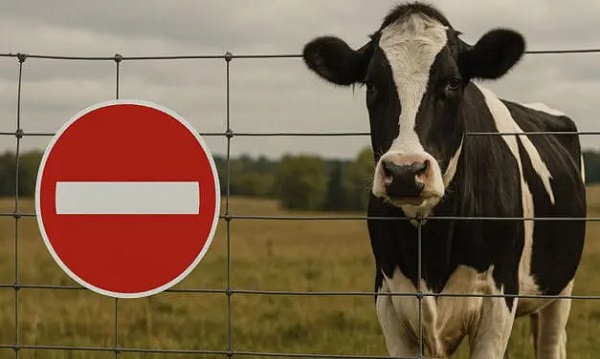Alberta
Provincial funds help build biofuel plant at Lethbridge reducing emissions equivalent to 41,000 homes

Diversifying the economy with cutting-edge tech
The Technology Innovation and Emissions Reduction (TIER) fund is supporting a new facility in southern Alberta that will create jobs and cut emissions by transforming agricultural waste.
Alberta’s government is using $4.7 million from the TIER fund through Emissions Reduction Alberta to create a $28.6-million facility in Lethbridge that will produce an estimated 70 million litres of high-value renewable fuel. This facility will be the first of its kind in Canada, turning local agricultural waste, inedible animal fats and used cooking oil into biodiesel fuel and glycerin.
The facility will buy more than $375 million of local feedstock from farmers over the next five years, generating about $500 million in revenue and supporting up to 130 local jobs in fields like engineering, construction and transportation. It will also cut about 224,000 tonnes of emissions each year – the same as reducing emissions from the electricity used by 41,000 homes.
“Alberta is home to world-renowned expertise on cutting agricultural emissions, and the Canary Biofuels facility is another world-class project Alberta’s government is supporting to diversify the economy and create jobs. I’m pleased to see the expansion of another groundbreaking Alberta-based technology that is cutting emissions and getting Albertans back to work.”
The facility’s biodiesel will have up to one-third the carbon intensity of petroleum diesel. The renewable fuel produced at the facility has also been pre-sold to a leading Canadian supplier of biodiesel whose customers include fuel retailers, wholesalers, distributors and fleet managers across Canada and the United States. This builds on Alberta’s strong record of environmental, social and governance actions.
“As world leaders in agricultural emission reductions, Alberta farmers will be key beneficiaries of the renewable diesel produced at this facility. Projects like this showcase the steps Alberta is taking to diversify the economy with cutting-edge technology and to create local jobs and opportunities.”
“Emissions Reduction Alberta continues to identify and invest in opportunities that accelerate the innovation required to strengthen Alberta’s economy and reduce greenhouse gases. Canary’s project will create new revenues for western Canadian agricultural producers and help meet the growing North American demand for biodiesel. This project is another example of what can happen when government, industry and entrepreneurs come together to deliver better economic and environmental outcomes.”
This funding is part of the province’s commitment of up to $750 million for emissions reduction and economic diversification programs and projects through the TIER fund and other funding that will directly support about 9,000 jobs and inject $1.9 billion into Alberta’s economy.
“Canary Biofuels is Alberta’s first Generation 2 biodiesel producer with its flagship facility in Lethbridge. Canary is excited to lead the path in Alberta in abating emissions through sustainable waste-based biodiesel production that supports the energy and agriculture industries in Alberta and the Prairies. Canary would like to thank all its investors and partners, including the Government of Alberta, for their tremendous support. Canary is proud to support Alberta in creating new jobs and helping Alberta industry on its journey to net zero.”
“Canadian canola is used in biofuel production around the world because it’s a low-carbon, sustainable and renewable resource. We are excited to see more investment in Lethbridge that will directly benefit canola farmers and Alberta’s agriculture value chain.”
“Canary Biofuels will provide long-term diversified business opportunity for R.K. Heggie Grain and Transmark. Local canola producers will have direct market access to the growing biofuel industry, and the livestock industry will get a much-needed supply of canola meal. Canary Biofuels is natural fit with R.K. Heggie Grain and Transmark to provide the company with feedstock for the plant and rail infrastructure to the get finished product to international markets.”
TIER funding
The TIER system is funded by large industry that pay into the fund when they do not meet emissions targets. Alberta is using the TIER fund for a range of programs that are reducing emissions, boosting the economy and getting Albertans back to work.
Quick facts
- The new Canary Biofuels facility is expected to be operational by fall 2021.
- TIER helps industrial facilities, which account for more than 60 per cent of Alberta’s total emissions, find innovative ways to reduce emissions and invest in clean technology to save money and stay competitive.
- Emissions Reduction Alberta invests revenues from TIER to accelerate the development and deployment of innovative clean technology solutions.
- Since 2009, Emissions Reduction Alberta has committed $649 million toward 204 projects worth $4.5 billion that are reducing emissions, creating competitive industries and leading to new business opportunities in Alberta. These projects are estimated to deliver cumulative reductions of almost 35 million tonnes of emissions by 2030.
Alberta
Alberta Premier Danielle Smith Discusses Moving Energy Forward at the Global Energy Show in Calgary

From Energy Now
At the energy conference in Calgary, Alberta Premier Danielle Smith pressed the case for building infrastructure to move provincial products to international markets, via a transportation and energy corridor to British Columbia.
“The anchor tenant for this corridor must be a 42-inch pipeline, moving one million incremental barrels of oil to those global markets. And we can’t stop there,” she told the audience.
The premier reiterated her support for new pipelines north to Grays Bay in Nunavut, east to Churchill, Man., and potentially a new version of Energy East.
The discussion comes as Prime Minister Mark Carney and his government are assembling a list of major projects of national interest to fast-track for approval.
Carney has also pledged to establish a major project review office that would issue decisions within two years, instead of five.
Alberta
Punishing Alberta Oil Production: The Divisive Effect of Policies For Carney’s “Decarbonized Oil”

From Energy Now
By Ron Wallace
The federal government has doubled down on its commitment to “responsibly produced oil and gas”. These terms are apparently carefully crafted to maintain federal policies for Net Zero. These policies include a Canadian emissions cap, tanker bans and a clean electricity mandate.
Following meetings in Saskatoon in early June between Prime Minister Mark Carney and Canadian provincial and territorial leaders, the federal government expressed renewed interest in the completion of new oil pipelines to reduce reliance on oil exports to the USA while providing better access to foreign markets. However Carney, while suggesting that there is “real potential” for such projects nonetheless qualified that support as being limited to projects that would “decarbonize” Canadian oil, apparently those that would employ carbon capture technologies. While the meeting did not result in a final list of potential projects, Alberta Premier Danielle Smith said that this approach would constitute a “grand bargain” whereby new pipelines to increase oil exports could help fund decarbonization efforts. But is that true and what are the implications for the Albertan and Canadian economies?
The federal government has doubled down on its commitment to “responsibly produced oil and gas”. These terms are apparently carefully crafted to maintain federal policies for Net Zero. These policies include a Canadian emissions cap, tanker bans and a clean electricity mandate. Many would consider that Canadians, especially Albertans, should be wary of these largely undefined announcements in which Ottawa proposes solely to determine projects that are “in the national interest.”
The federal government has tabled legislation designed to address these challenges with Bill C-5: An Act to enact the Free Trade and Labour Mobility Act and the Building Canada Act (the One Canadian Economy Act). Rather than replacing controversial, and challenged, legislation like the Impact Assessment Act, the Carney government proposes to add more legislation designed to accelerate and streamline regulatory approvals for energy and infrastructure projects. However, only those projects that Ottawa designates as being in the national interest would be approved. While clearer, shorter regulatory timelines and the restoration of the Major Projects Office are also proposed, Bill C-5 is to be superimposed over a crippling regulatory base.
It remains to be seen if this attempt will restore a much-diminished Canadian Can-Do spirit for economic development by encouraging much-needed, indeed essential interprovincial teamwork across shared jurisdictions. While the Act’s proposed single approval process could provide for expedited review timelines, a complex web of regulatory processes will remain in place requiring much enhanced interagency and interprovincial coordination. Given Canada’s much-diminished record for regulatory and policy clarity will this legislation be enough to persuade the corporate and international capital community to consider Canada as a prime investment destination?
As with all complex matters the devil always lurks in the details. Notably, these federal initiatives arrive at a time when the Carney government is facing ever-more pressing geopolitical, energy security and economic concerns. The Organization for Economic Co-operation and Development predicts that Canada’s economy will grow by a dismal one per cent in 2025 and 1.1 per cent in 2026 – this at a time when the global economy is predicted to grow by 2.9 per cent.
It should come as no surprise that Carney’s recent musing about the “real potential” for decarbonized oil pipelines have sparked debate. The undefined term “decarbonized”, is clearly aimed directly at western Canadian oil production as part of Ottawa’s broader strategy to achieve national emissions commitments using costly carbon capture and storage (CCS) projects whose economic viability at scale has been questioned. What might this mean for western Canadian oil producers?
The Alberta Oil sands presently account for about 58% of Canada’s total oil output. Data from December 2023 show Alberta producing a record 4.53 million barrels per day (MMb/d) as major oil export pipelines including Trans Mountain, Keystone and the Enbridge Mainline operate at high levels of capacity. Meanwhile, in 2023 eastern Canada imported on average about 490,000 barrels of crude oil per day (bpd) at a cost estimated at CAD $19.5 billion. These seaborne shipments to major refineries (like New Brunswick’s Irving Refinery in Saint John) rely on imported oil by tanker with crude oil deliveries to New Brunswick averaging around 263,000 barrels per day. In 2023 the estimated total cost to Canada for imported crude oil was $19.5 billion with oil imports arriving from the United States (72.4%), Nigeria (12.9%), and Saudi Arabia (10.7%). Since 1988, marine terminals along the St. Lawrence have seen imports of foreign oil valued at more than $228 billion while the Irving Oil refinery imported $136 billion from 1988 to 2020.
What are the policy and cost implication of Carney’s call for the “decarbonization” of western Canadian produced, oil? It implies that western Canadian “decarbonized” oil would have to be produced and transported to competitive world markets under a material regulatory and financial burden. Meanwhile, eastern Canadian refiners would be allowed to import oil from the USA and offshore jurisdictions free from any comparable regulatory burdens. This policy would penalize, and makes less competitive, Canadian producers while rewarding offshore sources. A federal regulatory requirement to decarbonize western Canadian crude oil production without imposing similar restrictions on imported oil would render the One Canadian Economy Act moot and create two market realities in Canada – one that favours imports and that discourages, or at very least threatens the competitiveness of, Canadian oil export production.
Ron Wallace is a former Member of the National Energy Board.
-

 International24 hours ago
International24 hours agoIsrael’s Decapitation Strike on Iran Reverberates Across Global Flashpoints
-

 Business2 days ago
Business2 days agoThe carbon tax’s last stand – and what comes after
-

 Business1 day ago
Business1 day agoTrump: ‘Changes are coming’ to aggressive immigration policy after business complaints
-

 illegal immigration1 day ago
illegal immigration1 day agoLA protests continue as judge pulls back CA National Guard ahead of ‘No Kings Day’
-

 International2 days ago
International2 days agoPentagon agency to simulate lockdowns, mass vaccinations, public compliance messaging
-

 National2 days ago
National2 days agoCarney promotes MP instrumental in freezing Freedom Convoy donors’ bank accounts
-

 Health2 days ago
Health2 days agoRFK Jr. appoints Robert Malone, Martin Kulldorff, other COVID shot critics to overhauled CDC vaccine panel
-

 Business2 days ago
Business2 days agoOur addiction to dairy supply management is turning Canada into a trade pariah






